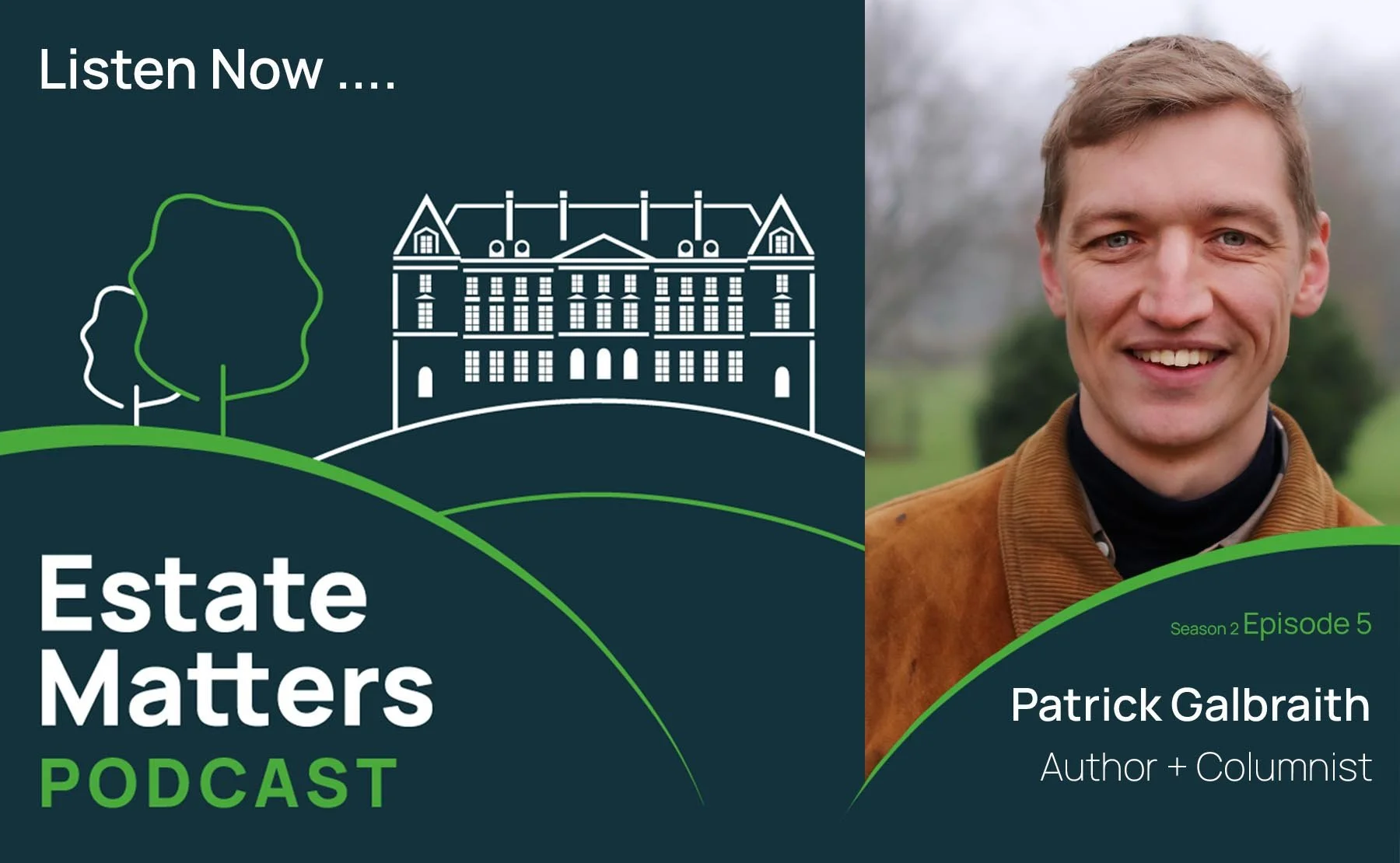Estate Matters S2 Ep5: Patrick Galbraith | The access debate
Landowners and farmers can help to improve the public’s understanding and appreciation of the countryside if they provide opportunities for people to engage with nature.
So says writer and columnist Patrick Galbraith, author of the book Uncommon Ground, which tackles the relationships people in Britain have with the countryside and how we can improve it.
Patrick, who is highly sceptical about campaigns which demand wider public access to the countryside with right to roam legislation, tells the latest episode of KOR Communications’ Estate Matters podcast that access and engagement are two different things.
Pointing to the experience in Scotland, where laws give the public a right to responsible access across thousands of acres of land, he says there is no evidence it has been of benefit to conservation or to farming.
He tells podcast host Anna Byles: “It’s not the case in Scotland that as a result of changing access opportunities… suddenly everybody has fallen in love with the capercaillie or the black grouse or everybody knows about native cattle, or everybody is talking about Molinia grass – that’s not the case.”
Patrick says schools have a part to play in educating young people about the countryside – and he is a big supporter of plans to introduce a GSCE course in Natural History, which should include significant time spent in the field, he says.
He adds that landowners and farmers - who, he says, are “tremendously privileged” to own land - must also do all they can to help inform and educate the public about caring for the landscape and the livestock and the wildlife that it supports.
“When a landowner or a farmer says: ‘The public don’t understand the countryside’ I say: ‘well what have you done to change that?’” he adds.
He argues that there are benefits to estate owners in demonstrating their social value if they engage with their communities and provide opportunities for people to enjoy the countryside and learn more about it. But he believes it is also their responsibility to do so, in part to justify the taxpayer-funded subsidy support many receive.
Patrick was the editor of the rural sports and countryside magazine Shooting Times at the age of 23 and is now a regular columnist and writer for national newspapers and magazines as well as an author of two books.
For his latest book, Uncommon Ground, he travelled all over Britain and talked to dozens of people about their relationship with the landscape. He is, he tells the podcast, interested in people who operate “on the fringes” of rural life and who are often ignored in debates about land use and access.
He also visited a number of rural estate owners. “I met landowners who were tremendous, who understood the wildlife on their land and who really understood the need for the community to really be able to see it and engage with it,” he says. “But I also met some landowners who didn’t even know the extent of the land they owned…”
Patrick’s book has been positively reviewed – but attracted criticism from land access campaigners some of whom, he said, had sought to prevent its publication. He says many of those agitating for more access and a right to roam in the countryside were more interested in the argument itself rather than achieving positive outcomes for the countryside or nature.
“We could fight it out,” he says. “But we’d still be fighting when the capercaillie’s gone extinct, when the turtle dove’s gone extinct and the curlew’s probably gone the same way.”
Despite the challenges Patrick is positive about the future of the public’s relationship with the countryside. He says if landowners and farmers can build trust with their communities and those who want to engage with the rural landscape then there is hope.
He believes that despite those who shout loudest in arguments about land access winning media coverage and social media followers, most people understand the nuances of land management and conservation and are sympathetic to what enlightened landowners are trying to do.
They need to keep on explaining what they are doing, he believes, and take every opportunity to spread the message. “There’s no silver bullet – but there are so many opportunities that are being missed,” he says.

